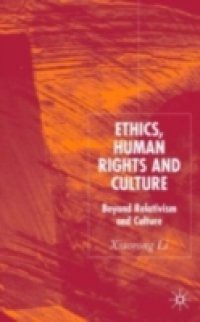This book addresses the familiar topics concerning universalism and cultural relativism in the light of an inventive and original understanding of culture. It demonstrates the possibility of validating common ethical standards (such as human rights) despite culturally incongruent perspectives and undermines the case for normative cultural relativism and moral skepticism by discrediting its outdated presumptions about culture. It makes the case for recognizing the right to culture as a human right and the case for developing the cultural capital for effective rights implementation. However, it also demonstrates the dependence of cultural communities on certain rights protections for survival in the contemporary world. By seeking conceptual clarity on a number of common assumptions, this book takes the discussion beyond the 'moral universalism vs. cultural relativism' dichotomy that has long framed the debate and offers an original and challenging series of questions which demand engagement.

